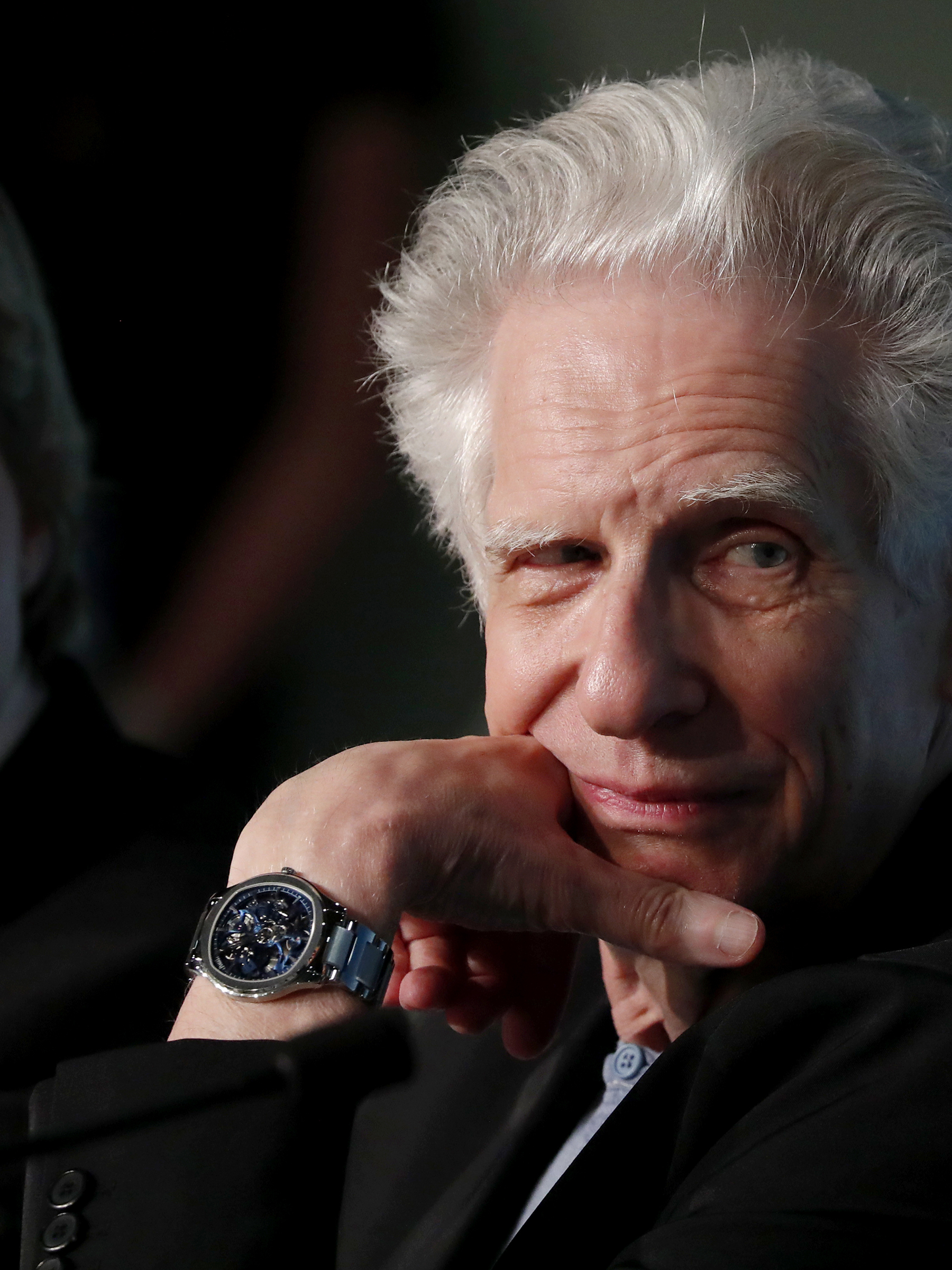
- Festivals
Cannes 2022: “Crimes of the Future” Stars on Cronenberg’s Latest
Halfway through the Cannes premier of Crimes of the Future, dozens of people walked out. At the end of the screening, the movie received a seven-minute standing ovation. “I’m very touched by your response,” Cronenberg said after the applause. “I hope you’re not kidding; I hope you mean it.”
Cronenberg has notoriously had a tumultuous time at Cannes. For example, his 1996 film Crash (during which the term symphorophiliacs was perhaps first introduced to the general public) was met with far more acrimony than his film at this year’s festival, although the subject matter of being sexually aroused by horrific events isn’t all that far off from that of his latest work, Crimes of the Future.
Crimes actor Kristen Stewart was up for any spectacle. “It’s fun to talk about people walking out of Cannes screenings,” she said during the Cannes press conference for the film. “Every single gaping, bleeding, pulsing, weird image; every bit of hurt, every bruise in his movies, it makes my mouth open. You want to lean towards it. It just never repulses me, ever. And so, I just think that everything about what he does, and this could be dead wrong, but the way I feel it is through really visceral desire. And that’s the only reason we’re alive; just because we’re little pleasure sacks.”
The Crimes of the Future logline could read: “As the human body adapts to new pleasures and needs, mutations and transformations abound.” In more plain terms, Saul Tenser (Viggo Mortensen) and his partner Caprice (Léa Seydoux) are celebrity artists testing and performing the limits of the human body in a future in which people no longer experience physical pain. They intersect with Timlin (Stewart) and Wippet (Don McKellar), investigators from the National Organ Registry who are tracking their movements, and Lang Daughtery (Scott Speedman), a man whose son “evolved” in a way that sets the stage for the film. There are some other tertiary characters and storylines, but at the end of the day the film relies on its stars and on cinematographer Douglas Koch’s erotic camera work to bring Cronenberg’s metaphors home.
Cronenberg wrote Crimes 24 years ago, and although people may be looking for echoes of vintage Cronenberg in the film, he insisted at the film’s press conference that the film should be able to stand on its own. “In each case, each film is a separate entity, and I know the films will connect, and I know many people see things in Crimes of the Future that they see in other films like Videodrome and Existence,” he said. “(But) when I’m making the film, I’m only thinking about this film as an entity on its own. I’m not really thinking about other films at all, or references to other films, even though I know those connections will be there. Creatively, they don’t really give me anything. When I’m working with Viggo, Lea, Kristen, Scott, I’m just looking at the actors, trying to make them good. Trying desperately to get a performance out of them and using any weaponry at my … no, okay—this is an old rap that Viggo and I had long ago about how I have to be cruel to my actors, but actually when you have great actors, they need very little directing.”
The film’s main star, Mortensen, is certainly not a Cronenberg virgin, having worked with the director on films like A Dangerous Method, Eastern Promises, and A History of Violence. “I’ve been pounded into submission some time ago so I’m just a willing slave basically, wouldn’t you say?” a spry 63-year-old Mortensen jokingly asked Cronenberg during the Crimes of the Future press conference. “Yeah, slavery is the institution that is the basis of our relationship,” Cronenberg replied.
The use of that term is as questionable as are many of Cronenberg’s intentions in making this film. Fellow Canadian Speedman admitted: “I’m still not totally sure I understand [the film],” he said during his Cannes press conference at the American Pavilion. “My role in it, if you see it, I was able to separate myself and focus on my role in it. I understand it to a certain degree, but where David’s intentions and theme and what he is trying to say, the allegories and metaphors, yeah. A little over here. But yeah, if you want to ask him, ask him. But no, some scripts are very heavy and detailed, and some scripts are more open to interpretation. My feeling with David is he leaves a little open. So, you don’t get the whole movie just from his script.”
Nevertheless, Speedman was grateful for the opportunity to work with Cronenberg. “The godfather of body horror, they call him. That was really cool. I’m Canadian, and there’s a couple of guys that are on my list. And I’ve gotten to work with some of them. And he was definitely the top of my list. And I wasn’t sure. He hadn’t made a movie for eight years, so I wasn’t sure what was going on. I’d heard about this movie, and we were tracking it and wanting to be a part of it.”
The notorious one-take director’s vision may not have been clear with his actors, but they all had enough faith in his talent and reputation to see the project through. “We spent every single day after work, all the actors, being, ‘What the fuck are we doing?’” Stewart added. “But then I watched the movie last night, and I was, ‘It’s so crystal clear to me.’ It is David. It’s so exposing. And it does feel like you’re hacking up organs when you make something. And if it doesn’t feel that way, it’s not worth it.”
Cronenberg is a Palme contender for Crimes of the Future. The film will open in U.S. theaters on June 3.

